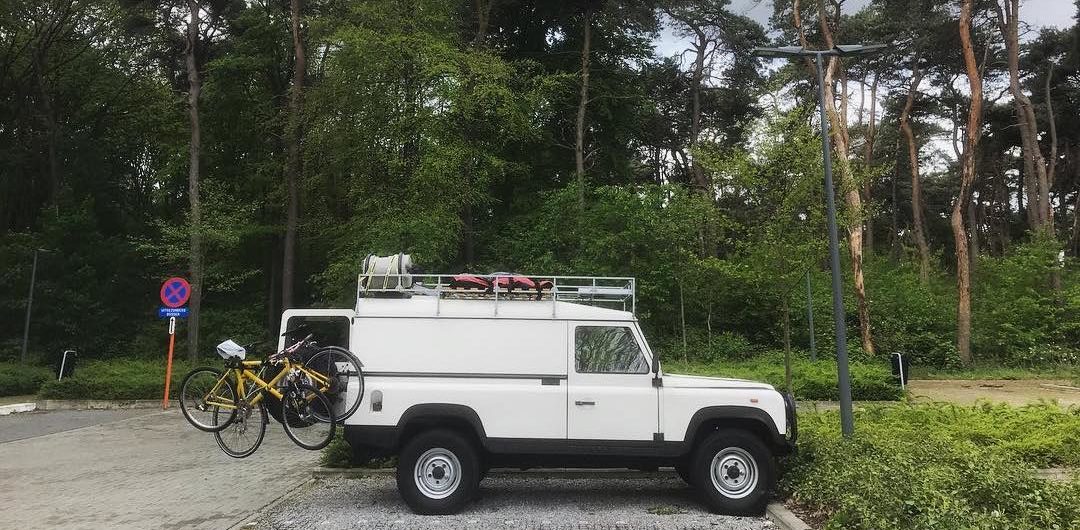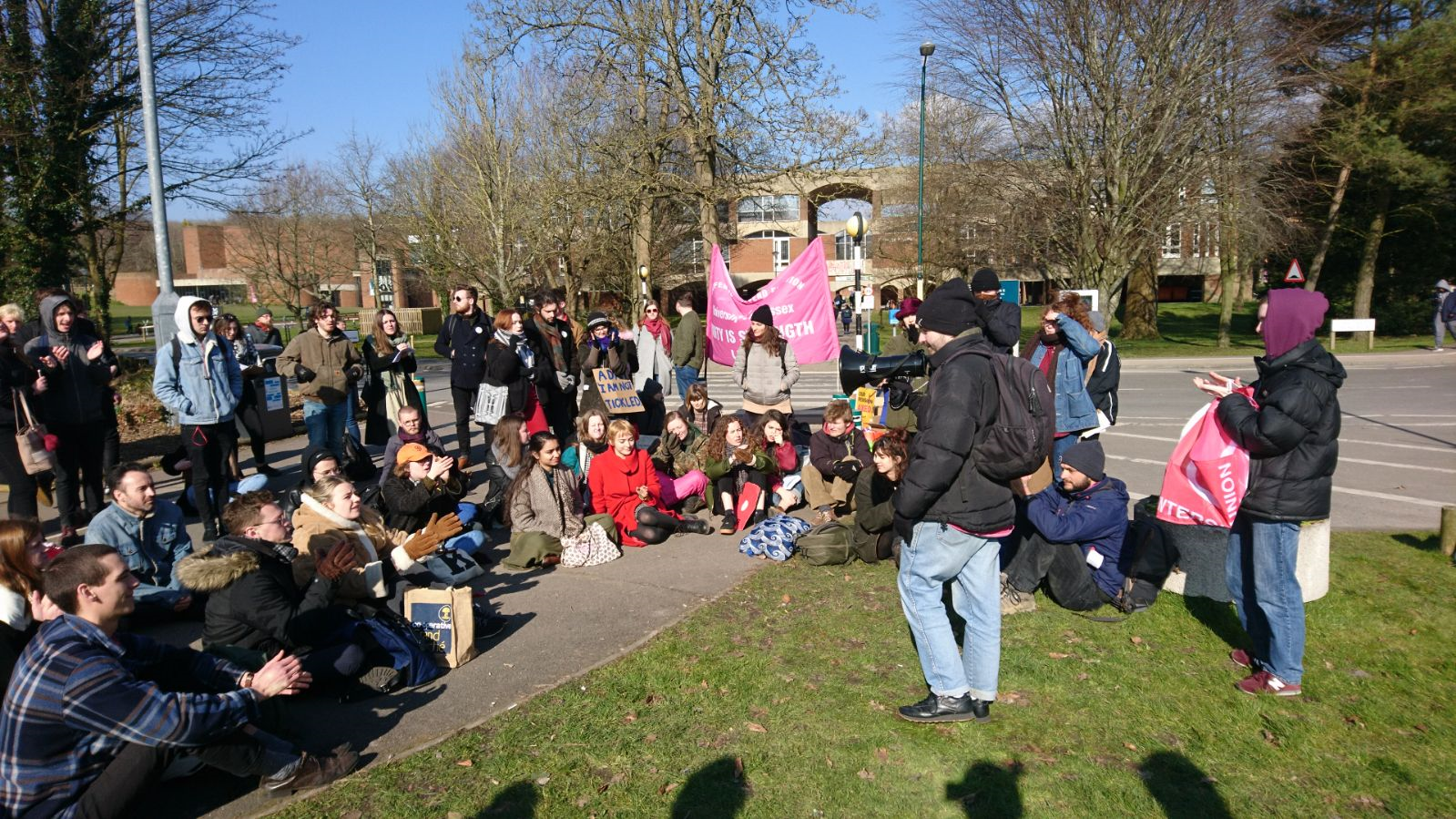What might Van Life offer to students? We interviewed two such travelers to find out what they think.
They’ve got glowing tans, deals with brands, and beautiful converted vans. You’ve definitely seen their pictures on Instagram. It’s #vanlife, and it’s the craze sweeping the beautiful and brave.
I love watching tiny home conversion videos on YouTube, so when van conversions started popping up on my recommended videos I was hooked. The idea behind tiny-living is a minimalistic dream, Marie Kondo meet National Geographic in one Instagrammable fantasy of a gap year. After years of student accommodation, the idea of transforming a space completely is incredibly satisfying.
Those who do van life full time tend to have job titles like ‘flexible-freelance-social-media-consultant’, and swept back hair which tells you that they probably went surfing with the sunrise before taking a run through some scenic country backroads before you even managed to check your phone this morning.
But is this just an extension of the middle class fantasy of a modern nomadic lifestyle, sans deprivation of any modern luxuries? Or else is this shift more indicative of a change in the ways we categorise life, work, and youth in general?
What started out as a seemingly unachievable dream requiring more time and money that anybody born silver spoon-less might reasonably have, is spreading more and more, becoming especially popular with recent graduates looking for a bit of adventure.
While the pre-university gap year is on the down-turn, higher rates of people are choosing to spend their summers or the year after graduation travelling, interning, and generally not fulfilling the stereotype of jumping straight into a job or a masters programme. Plus, with the proliferation of young people changing careers, many are choosing to take time to travel in breaks and changes later in life.
Many van lifers have turned to the trend not out of a need for #lifelovetravel, but in response to the lack of housing opportunities in an ever more expensive market. With no prospects of buying property for many students, is van life a more sustainable way of living?
We talked to a few recent van-lifers and graduates about the appeal for students, the hard times, and the truth behind the pictures.
Molly Rose Bryan had just graduated from the University of Falmouth with a BA in Graphic Design when she and her boyfriend decided to take to the road. Their trip through Europe was cut short after some van issues, but they were back on the road by spring, after working for several months to raise more funds. In their second trip they took a month to travel around France, Belgium and the Netherlands. They post about their journeys on Instagram under the name @Rosieroams.
Freya Marshall-Payne, ex-editor-in-chief of The Badger, took to the road after her degree at Sussex in English and History. Along with her partner and fellow Badger alum, Tom Robinson, Freya travelled around Spain, Portugal, the Basque Country, and France for a year before going on to begin her MA. She and Tom actually wrote about the history and realities of van life in an article for Vice, ‘The Reality of Living in the Back of a Van’.
Why did you choose after university as the time to go travelling? Were you scared to take that leap out of education?
MB: It had been my boyfriend’s dream to live in a Land Rover and travel around Europe for a year after uni, he decided to wait for me to graduate so I could join him. It felt like a sensible time to go before settling into a job I wasn’t scared to take the leap out of education. I actually did three internships before I left. It felt more scary going travelling while my peers were all settling and getting jobs.
FM: The hilarious thing about me living in a van is that I’ve not yet learned to drive. We split tasks so that we wouldn’t get in each other’s way and to acknowledge that he was doing so much work!
As I neared the end of my undergraduate degree, I began to realise that it would be a good idea for me to take a year out of education before embarking on postgraduate qualifications: I was attracted by several academic fields and by journalism too. Taking time out was a way to make sure I’d have the time and clarity to make the right decisions.
Tom and I actually met on The Badger (!) and had been together for just over a year when we started talking about what we’d do after university: the idea of spending some time travelling came up quite organically, I seem to remember. The notion of the van came into the picture when we were thinking about practicalities.
What were some of your favourite moments?
MB: Favourite moments! Cooking dinner with minimal equipment but managing to make some delicious meals. Outdoor showers, particularly on the beach in Ile de Re! Île de Ré as a whole was incredible – we ended up staying in the same spot for two weeks. Getting to use our bikes a lot. Finally, I loved volunteering on organic farms and meeting new people there.
FM: The wonderful thing about living in a van is the incredible range of possibilities open to you each day – it feels like you can head off anywhere. I loved the long journeys we would make through changing landscapes; we would stop for little breaks to explore wherever we felt like and, if we found somewhere which felt right, we’d stop for a while and live there!
When we lit fires in summer evenings we would sit outside for a long time in the firelight talking, often by beautiful rivers, under these huge skies filled with stars, and I think I will always remember those moments! (We ended up in some lovely spots, often with beautiful vistas over rivers, lakes or hillsides).
Serious question – how can people afford to do this?
MB: It is affordable, you’ve just got to be clever about it. It cost us quite a bit as the Landy isn’t very fuel efficient! But if you’re clever you can keep costs down with a good vehicle, and things like cooking your own meals.
FM: Because my dad generously gave us the van, it was actually far more affordable than the transition to van-dwelling usually might be. However, once you’re up-and-running, it’s always an affordable way of life; when we were writing about van-living for Vice, Tom and I interviewed different people who were living in vans and the common appeals were always freedom and affordability.
We started looking at vans we could convert but the one we ended up using was a small one my dad already owned. It had lived out its working life as a disability vehicle for Lewisham Council and then my dad had bought it on eBay when I was a teenager for £250. Tom and I converted that van with the help of a carpenter friend.
I think it’s affordable if you do it in the non-#vanlife way, keeping your spending low, and you do some remote working or odd jobs along the way.
With the rise in consideration of how environmentally harmful travelling can be, is van life sustainable?
MB: Well, it’s better than flying. We tried our best to reduce our plastic use, hasdbamboo toothbrushes, and hand washed our clothes. Again, you have to be clever about it to cut down the negative effects on the environment.
FM: I think: there’s an environmentalist paradox to living in a van because, on the one hand, it brought me so much closer to nature and put me far more in touch with worries about the climate crisis – while on the other hand, the very way you’re living depends on diesel. In short, I felt that van-dwelling led to a sort of ambivalent, complex relationship between depending on a vehicle and caring about nature
What were the worst things about van life?
MB: Worst things. No nice toilets or showers. When it rained we had nowhere to dry off properly so we were stuck in the small van. Also we got infested with ants!
FM: The worst thing about van-dwelling was days when it rained and we were in the van. It was such a small space, to stretch out if we were working, one of us would sit in the front while the other sat in bed at the back! We would sometimes even try and literally escape the bad weather by driving away from it.
Do you miss it?
MB: I do really miss it. I loved the break from technology, I read so many books! I miss seeing new places everyday.




